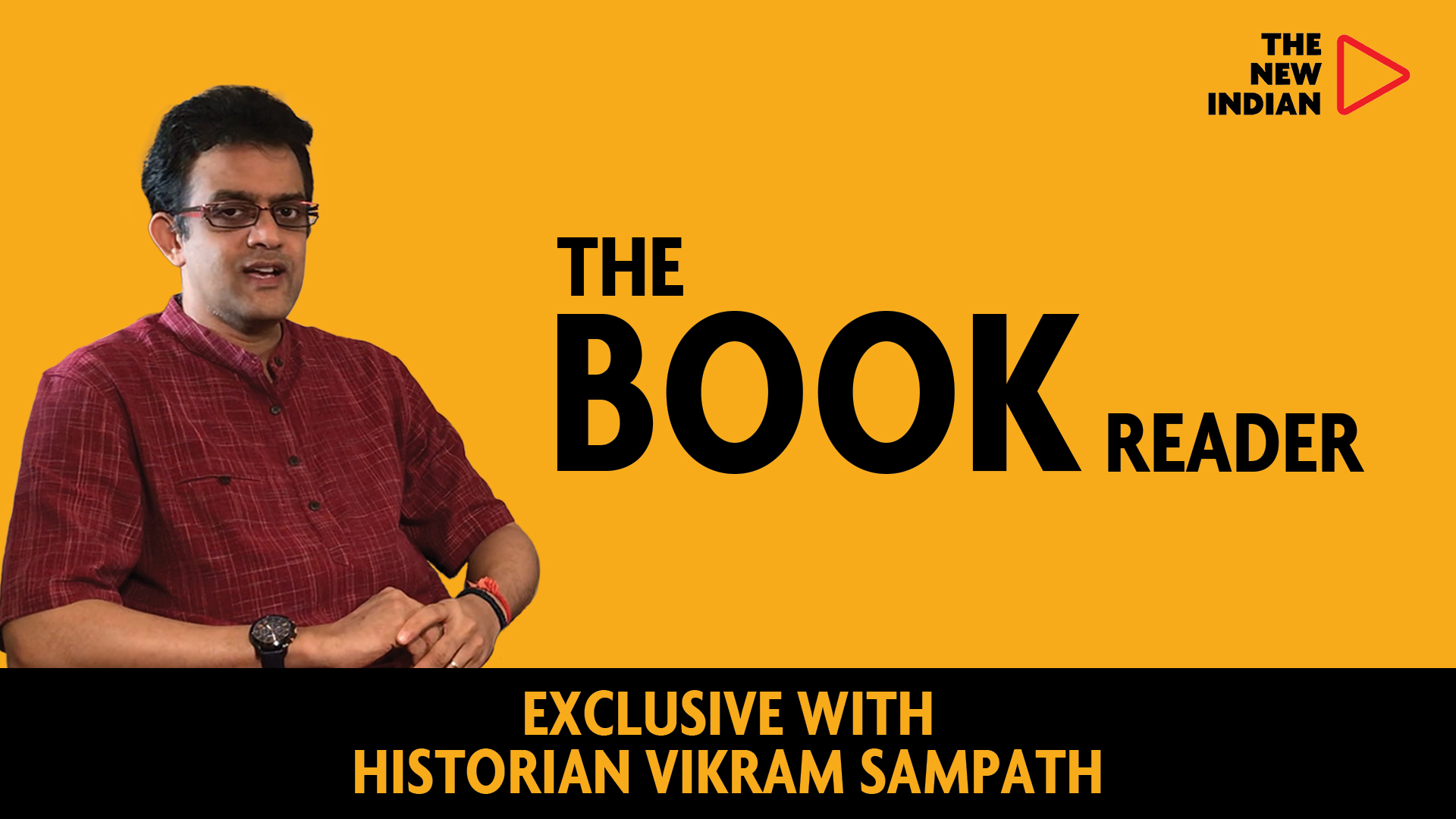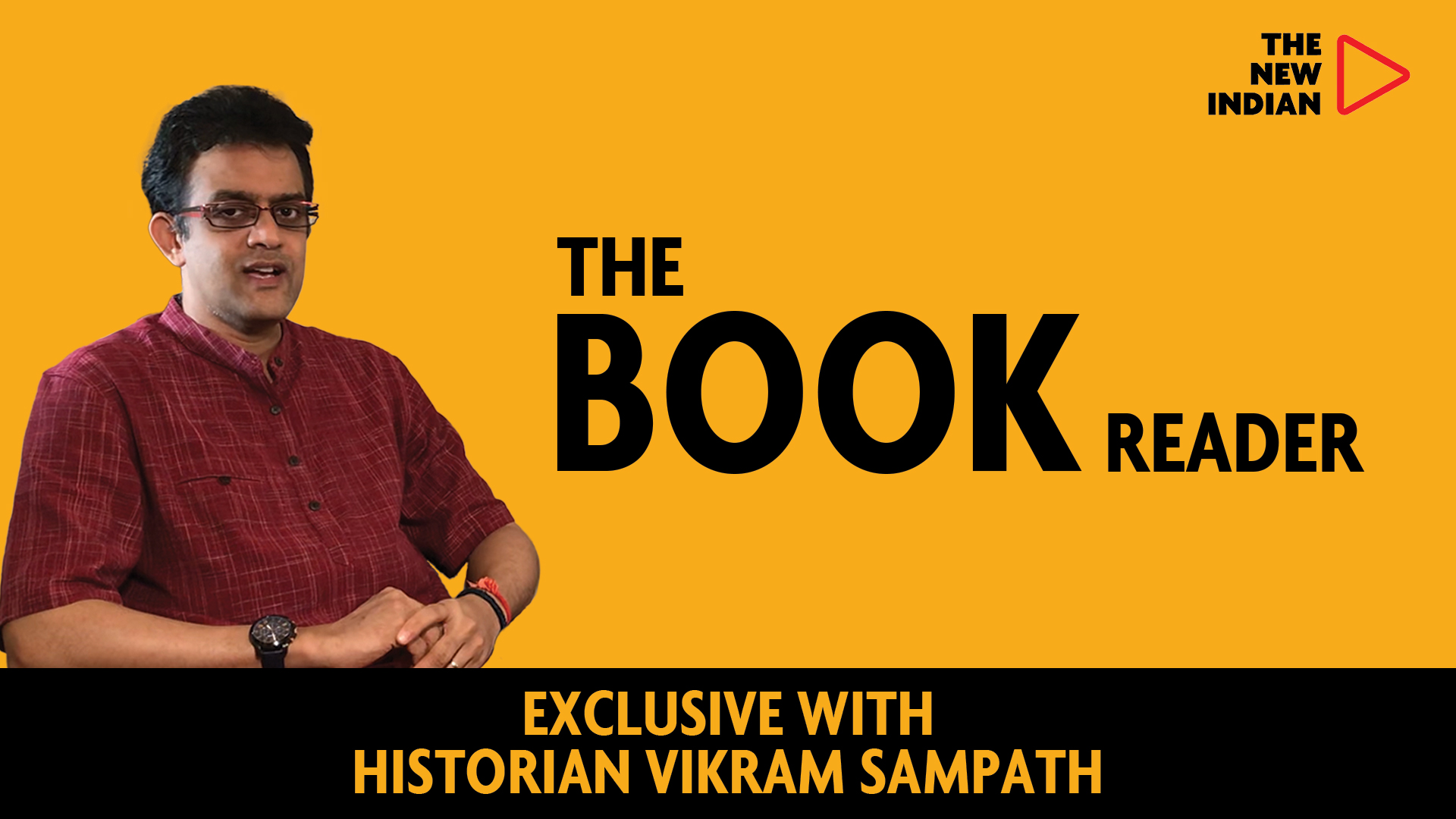Historian, author, Vikram Sampath, brought about a paradigm shift in the thinking about historical figures, with his book on Veer Savarkar — ‘Savarkar: Echoes from a forgotten past’. And now with his second volume on Savarkar — ‘Savarkar: A contested Legacy’, Sampath has brought a closure to the biggest controversial question on the man himself – Who was he? A coward or really ‘Veer’?
In conversation with Aarti Tikoo
Aarti Tikoo: Our generation grew up seeing Veer Savarkar in a negative light. That image was built through NCERT books. Even touching the subject was almost like getting stigmatised yourself. Were you afraid that you will get stigmatised, if you covered Savarkar, as a historian?
Vikram Sampath: In fact, my mother kept warning me against doing so. In the past, I’ve written on topics including the very controversial figure from my state Karnataka, Tipu Sultan, who intrudes politics in my state. It was just a newspaper article, but for that my effigy was burnt in the heart of the city by a group of fundamentalists. This was to be a two volume biography of a man who raises so many heckles. I think it’s an occupational hazard. History has become such a battlefield today, and quite ironic, in a country where we care so little about our past, about its preservation and even documentation… All of those forts and heritage monuments could be crumbling and we would not care less, but then we are so touchy and sensitive about characters of the past and their evaluation.
So an objective biography of, say even a, Dr. Ambedkar today cannot be written. Look at what Arun Shourie faced when he wrote ‘Worshipping False Gods’ on Dr Ambedkar. In Veer Savarkar’s case, there was already so much of calumny around him that it’s probably kosher to abuse him. So, I wasn’t so worried about whether that is going to put me into trouble, but yes there were concerns that in India it is so easy to label someone as something. The very fact that you pick up a subject as controversial as him can make you open to all kinds of labelling. I used to be sensitive at some point of time, but now I know that my work would speak for me and not these labels of expediency that happen on social media day in and day out.
Aarti Tikoo: Is it possible to reconcile Savarkar and Gandhi in one frame?
Vikram Sampath: Gandhi and Savarkar, according to me, are the two irreconcilable poles of Indian history — just as they’re right here in Delhi in the central hall of Parliament, their photographs diagonally opposite to each other. I am sure it was not by design. I don’t merit our leaders with so much of metaphorical knowledge. But then, the very fact that they are diagonally opposite shows that the twain shall never meet. They had fundamental differences on possibly every issue. Certainly, both had the same objective — they wanted independence for India — but the way to approach that was something that they completely differed on. Gandhi dealt more with a non-violent, pacifist kind of a movement, whereas Savarkar believed in an armed struggle. And a revolutionary armed violent struggle at that.
Gandhi considered the Varna system to be to be something that was integral to the Hindu society and that if the Varanasharam is unraveled, then the entire edifice of Hinduism would collapse. Whereas, Savarkar and Ambedkar actually thought that the Varna was something very odious and a root cause of Jaatiwaad and all the sub castes, that came in Hinduism. They wanted a classless society and elimination of all kinds of cast differences. Hindu-Muslim unity was another landmine between the two people.
I think these two men could not co-exist during their time as they were ideologically opposed to each other at every point. But today, seven decades after independence, most of these characters having passed on, it’s imperative to understand that there is no one hallowed idea of India. There are these multiple opinions, multiple ideas of India, which can coexist and our constitution is that wonderful melting pot where all these ideas have coalesced to form the idea of the nation.
Aarti Tikoo: Was Savarkar really a coward?
Vikram Sampath: How are we to evaluate today, sitting in our air conditioned rooms and with the luxury of retrospective vision, to actually assess what the conditions in the Indian Bastille, the Cellular Jail in the Andamans was? Where even the basic human facilities of good food, toilet facilities or medical treatment was not given to the political prisoners? Where in the blazing heat of Port Blair, they had to extract 30 pounds of oil every day, and if they did not they would be flogged, and not be given food to eat, solitary confinement for months on end? People standing, hands and legs tied up in handcuffs, so much so that the inmates had to defecate in their own cells and sit amidst their own squalor. And this was not for one year or two years, it was a 50 year life imprisonment that was given to Savarkar, a young man of 26 or 27.
Bhagat Singh did not file a petition but Bhagat Singh was executed. So if Savarkar had been given the same punishment, would he have filed a petition? Nobody knows. He may have perhaps embraced the noose. So, in this condition, where you are put in such inhuman torture, where many of the other political prisoners, either committed suicide because they thought death was better than the torture that they were facing, or actually went senile, it has to be brave of a man to hold on.
Even after coming out of prison in 1924 under a conditional release that for five years, he was put under severe restrictions. So my question is, if someone was a coward, a stooge who had sold out to the British, wouldn’t the British have made use of him? After all, he was a trained lawyer in London. So his utility in the government, especially after 1937, when provincial governments started getting formed in India, could well have got him the prime ministership of Bombay state in 1937. The very fact that the British always viewed him with suspicion, showed that they did not trust him or his petitions or whatever that he wrote, he was constantly under surveillance.
Aarti Tikoo: It is often alleged that Veer Savarkar was involved in Gandhi’s assassination. What does the historical evidence tell us?
Vikram Sampath: I have access to about 11,100 pages of Mahatma Gandhi murder trial case papers from the National Archives of India. The details are there in the appendix as to what were the documents that were accessed and a comprehensive look at all of that ensures, like what the trial court in 1949 after the Red Fort trial that was done in Delhi, then for one year, keeping all of them in jail. It gave Savarkar a clean chit, and it was not as is alleged for lack of evidence, but because there was no evidence to actually link him to the murder. Now, of course, both Nathuram Godse and Narayen Apte were the main assassins. They were Savarkar’s acolytes before. They also formed and were part of the Hindu Maha Sabha. They actually left the RSS, and were not part of the RSS then. There was a lot of tension between the Maha Sabha and the RSS and many of Savarkar loyalists pulled out from the RSS and formed their own Boy Scouts, so to say, called the Hindu Rashtra Dal of which Godse and Apte were a part. They owed allegiance to Savarkar, akin to hero worship, but towards 1945-46, Savarkar’s own health was so bad (he had two heart attacks), he almost died. The Hindu Maha Sabha faded away into oblivion. Even Godse, in his dying declaration/testimony in the court said that, they got disillusioned with Savarkar, who had become a pacifist.
Savarkar was implicated on the basis of the testimony of a police approver Digambar Badke, who made a claim that when went to Savarkar’s house with Godse and Apte, Savarkar said in Marathi ‘Yashasvi Ho Unya’ which means ‘be successful and come back’. This was construed as his advice or blessing to them to go and kill Gandhiji. It was an argument that lacked substance or weight. It was never established that Savarkar was part of this murder conspiracy. The court went through all the documents and then exonerated him.
Aarti Tikoo: What is the difference between Nehru’s idea of India and Veer Savarkar’s idea of India?
Vikram Sampath: Nehru and Savarkar are two very different beings. The way they saw the past in a way determined the future. Both wrote historical books. Nehru wrote the ‘Discovery of India’ and Savarkar wrote on the 1857 uprising which he called the First War of Indian independence. He also wrote a book called ‘The six glorious epochs of Indian history’. He was an amateur historian of sorts. So both of them were engaging with the past of India. But while, in my view, the Nehruvian version of India’s past was with a sense of apology, with a sense of shame, in Savarkar’s case, he ensured that these are fissures that we need to acknowledge.
We need to understand that we cannot wish away our history, if they have been invasions or if there has been a Hindu genocide in our past… Savarkar does not shy away from mentioning all of that in ‘The six glorious epochs’. There is an acknowledgment that this is what our past contains, and that we must move forward from there. Closure to the pain of the past, to heal those wounds, to make peace with that and to move on to a better future is always a better way to deal with history than to assume that something didn’t even happen.
I think that is what was in my view a Savarkarite view of history and how we need to then shape our nation based on that. But on other issues, both of them would converge, even on the idea of secularism. Religion is personal and for the state, the word ‘Hindu’ had nothing to do with the theological constructs of Hindu religion, but more of a cultural and a nationalistic identity marker, where anybody who lived between the Indus and the ocean and considered this land as a sacred geography, as the land of their forefathers/ their holy land was a part of Hindu Rashtra. What was important was the crux of his Hindutva – he counted all, be it Hindus or those following other religions including Islam, Christianity, Sikhism, Jainism and Buddhism — as Hindus and he said that’s how the rest of the world looks at us as well.












A new insights into the history bringing about the Savarkar and Gandhi. I can not comment on their individual contribution one thing I can say is in Savarkar harassment in the hands of British there might be an indian hand who opposed his leaning towards Hindu mahasabha.
Gandhiji soft corner to the muslims maybe the reason behind Savarkar’s idea of Hindu mahasabha